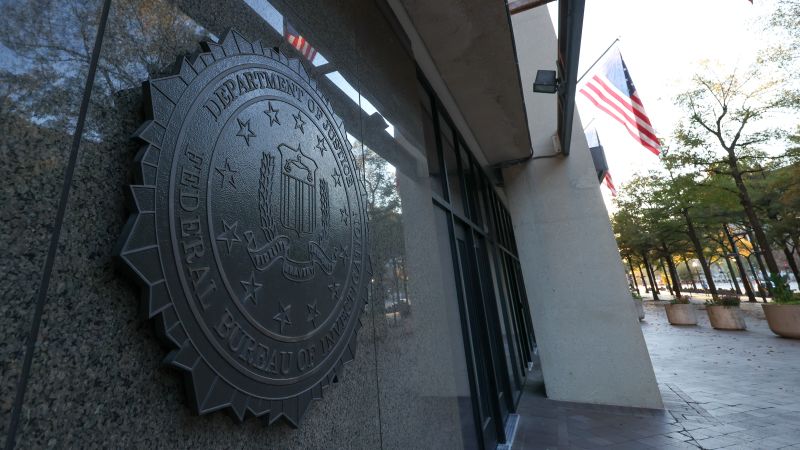Mexican Cartel's Cyberattack on FBI: How Hackers and Murder Became Tools of the Trade

According to a recently released audit, a sophisticated Mexican drug cartel utilized a skilled hacker to monitor an FBI official and, subsequently, target and murder individuals suspected of cooperating with US authorities. This isn't a scene from a spy thriller; it's a documented reality highlighting the cartel's increasingly technological prowess and ruthlessness.
The hacker, working on behalf of the cartel, reportedly gained access to sensitive information, allowing them to identify and track the FBI official's movements and communications. This intelligence was then used to pinpoint potential informants, individuals who posed a threat to the cartel's operations. The consequences were devastating: these informants were systematically targeted and killed, silencing those who could have provided crucial information to law enforcement.
This case offers a rare and unsettling look into the inner workings of these powerful cartels. Traditionally, we've associated them with violence and drug trafficking. However, this incident demonstrates a significant shift – the integration of sophisticated cyber capabilities into their operational toolkit. It signals a new era of criminal activity where technology isn't just used for financial gain but also as a weapon to suppress dissent and eliminate threats.
The audit raises serious concerns about the vulnerability of US law enforcement agencies to cyberattacks. The cartel's success in breaching security protocols underscores the need for enhanced cybersecurity measures and increased training for personnel dealing with sensitive information. Authorities must adapt to this new reality, recognizing that the threat isn't just physical but also digital.
This incident is not an isolated case. Across the globe, criminal organizations are increasingly embracing technology to expand their reach and evade detection. From using encrypted messaging apps to facilitate drug trafficking to employing ransomware attacks to extort businesses, the intersection of transnational crime and technological advancement presents a complex and evolving challenge.
Combating this threat requires a multi-faceted approach. This includes:
- Enhanced Cybersecurity: Investing in robust cybersecurity infrastructure and protocols to protect sensitive information and prevent data breaches.
- Intelligence Sharing: Improving collaboration and intelligence sharing between law enforcement agencies, both domestically and internationally.
- Cybercrime Units: Strengthening cybercrime units within law enforcement agencies to investigate and prosecute these sophisticated attacks.
- Disrupting Cartel Networks: Focusing on dismantling the cartel's financial networks and disrupting their ability to recruit and train skilled hackers.
The Mexican cartel's cyberattack on the FBI serves as a stark reminder that the fight against transnational crime is evolving. To effectively combat these threats, law enforcement agencies must adapt, innovate, and embrace the power of technology to defend against those who seek to exploit it for nefarious purposes.






